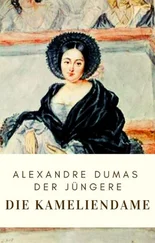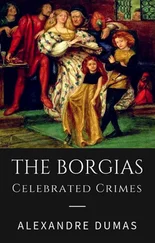Alexandre Dumas - Celebrated Crimes (Complete)
Здесь есть возможность читать онлайн «Alexandre Dumas - Celebrated Crimes (Complete)» — ознакомительный отрывок электронной книги совершенно бесплатно, а после прочтения отрывка купить полную версию. В некоторых случаях можно слушать аудио, скачать через торрент в формате fb2 и присутствует краткое содержание. Жанр: literature_19, foreign_antique, foreign_prose, на английском языке. Описание произведения, (предисловие) а так же отзывы посетителей доступны на портале библиотеки ЛибКат.
- Название:Celebrated Crimes (Complete)
- Автор:
- Жанр:
- Год:неизвестен
- ISBN:нет данных
- Рейтинг книги:3 / 5. Голосов: 1
-
Избранное:Добавить в избранное
- Отзывы:
-
Ваша оценка:
- 60
- 1
- 2
- 3
- 4
- 5
Celebrated Crimes (Complete): краткое содержание, описание и аннотация
Предлагаем к чтению аннотацию, описание, краткое содержание или предисловие (зависит от того, что написал сам автор книги «Celebrated Crimes (Complete)»). Если вы не нашли необходимую информацию о книге — напишите в комментариях, мы постараемся отыскать её.
Celebrated Crimes (Complete) — читать онлайн ознакомительный отрывок
Ниже представлен текст книги, разбитый по страницам. Система сохранения места последней прочитанной страницы, позволяет с удобством читать онлайн бесплатно книгу «Celebrated Crimes (Complete)», без необходимости каждый раз заново искать на чём Вы остановились. Поставьте закладку, и сможете в любой момент перейти на страницу, на которой закончили чтение.
Интервал:
Закладка:
Alexandre Dumas
Celebrated Crimes (Complete)
NOTE:
Dumas's 'Celebrated Crimes' was not written for children. The novelist has spared no language – has minced no words – to describe the violent scenes of a violent time.
"In some instances facts appear distorted out of their true perspective, and in others the author makes unwarranted charges. It is not within our province to edit the historical side of Dumas, any more than it would be to correct the obvious errors in Dickens's Child's History of England. The careful, mature reader, for whom the books are intended, will recognize, and allow for, this fact.
INTRODUCTION
The contents of these volumes of 'Celebrated Crimes', as well as the motives which led to their inception, are unique. They are a series of stories based upon historical records, from the pen of Alexandre Dumas, pere, when he was not "the elder," nor yet the author of D'Artagnan or Monte Cristo, but was a rising young dramatist and a lion in the literary set and world of fashion.
Dumas, in fact, wrote his 'Crimes Celebres' just prior to launching upon his wonderful series of historical novels, and they may therefore be considered as source books, whence he was to draw so much of that far-reaching and intimate knowledge of inner history which has perennially astonished his readers. The Crimes were published in Paris, in 1839-40, in eight volumes, comprising eighteen titles – all of which now appear in the present carefully translated text. The success of the original work was instantaneous. Dumas laughingly said that he thought he had exhausted the subject of famous crimes, until the work was off the press, when he immediately became deluged with letters from every province in France, supplying him with material upon other deeds of violence! The subjects which he has chosen, however, are of both historic and dramatic importance, and they have the added value of giving the modern reader a clear picture of the state of semi-lawlessness which existed in Europe, during the middle ages. "The Borgias, the Cenci, Urbain Grandier, the Marchioness of Brinvilliers, the Marchioness of Ganges, and the rest – what subjects for the pen of Dumas!" exclaims Garnett.
Space does not permit us to consider in detail the material here collected, although each title will be found to present points of special interest. The first volume comprises the annals of the Borgias and the Cenci. The name of the noted and notorious Florentine family has become a synonym for intrigue and violence, and yet the Borgias have not been without stanch defenders in history.
Another famous Italian story is that of the Cenci. The beautiful Beatrice Cenci – celebrated in the painting of Guido, the sixteenth century romance of Guerrazi, and the poetic tragedy of Shelley, not to mention numerous succeeding works inspired by her hapless fate – will always remain a shadowy figure and one of infinite pathos.
The second volume chronicles the sanguinary deeds in the south of France, carried on in the name of religion, but drenching in blood the fair country round about Avignon, for a long period of years.
The third volume is devoted to the story of Mary Queen of Scots, another woman who suffered a violent death, and around whose name an endless controversy has waged. Dumas goes carefully into the dubious episodes of her stormy career, but does not allow these to blind his sympathy for her fate. Mary, it should be remembered, was closely allied to France by education and marriage, and the French never forgave Elizabeth the part she played in the tragedy.
The fourth volume comprises three widely dissimilar tales. One of the strangest stories is that of Urbain Grandier, the innocent victim of a cunning and relentless religious plot. His story was dramatised by Dumas, in 1850. A famous German crime is that of Karl-Ludwig Sand, whose murder of Kotzebue, Councillor of the Russian Legation, caused an international upheaval which was not to subside for many years.
An especially interesting volume is number six, containing, among other material, the famous "Man in the Iron Mask." This unsolved puzzle of history was later incorporated by Dumas in one of the D'Artagnan Romances a section of the Vicomte de Bragelonne, to which it gave its name. But in this later form, the true story of this singular man doomed to wear an iron vizor over his features during his entire lifetime could only be treated episodically. While as a special subject in the Crimes, Dumas indulges his curiosity, and that of his reader, to the full. Hugo's unfinished tragedy,'Les Jumeaux', is on the same subject; as also are others by Fournier, in French, and Zschokke, in German.
Other stories can be given only passing mention. The beautiful poisoner, Marquise de Brinvilliers, must have suggested to Dumas his later portrait of Miladi, in the Three Musketeers, the mast celebrated of his woman characters. The incredible cruelties of Ali Pacha, the Turkish despot, should not be charged entirely to Dumas, as he is said to have been largely aided in this by one of his "ghosts," Mallefille.
"Not a mere artist" – writes M. de Villemessant, founder of the Figaro, – "he has nevertheless been able to seize on those dramatic effects which have so much distinguished his theatrical career, and to give those sharp and distinct reproductions of character which alone can present to the reader the mind and spirit of an age. Not a mere historian, he has nevertheless carefully consulted the original sources of information, has weighed testimonies, elicited theories, and.. has interpolated the poetry of history with its most thorough prose."
THE BORGIAS
PROLOGUE
On the 8th of April, 1492, in a bedroom of the Carneggi Palace, about three miles from Florence, were three men grouped about a bed whereon a fourth lay dying.
The first of these three men, sitting at the foot of the bed, and half hidden, that he might conceal his tears, in the gold-brocaded curtains, was Ermolao Barbaro, author of the treatise 'On Celibacy', and of 'Studies in Pliny': the year before, when he was at Rome in the capacity of ambassador of the Florentine Republic, he had been appointed Patriarch of Aquileia by Innocent VIII.
The second, who was kneeling and holding one hand of the dying man between his own, was Angelo Poliziano, the Catullus of the fifteenth century, a classic of the lighter sort, who in his Latin verses might have been mistaken for a poet of the Augustan age.
The third, who was standing up and leaning against one of the twisted columns of the bed-head, following with profound sadness the progress of the malady which he read in the face of his departing friend, was the famous Pico della Mirandola, who at the age of twenty could speak twenty-two languages, and who had offered to reply in each of these languages to any seven hundred questions that might be put to him by the twenty most learned men in the whole world, if they could be assembled at Florence.
The man on the bed was Lorenzo the Magnificent, who at the beginning of the year had been attacked by a severe and deep-seated fever, to which was added the gout, a hereditary ailment in his family. He had found at last that the draughts containing dissolved pearls which the quack doctor, Leoni di Spoleto, prescribed for him (as if he desired to adapt his remedies rather to the riches of his patient than to his necessities) were useless and unavailing, and so he had come to understand that he must part from those gentle-tongued women of his, those sweet-voiced poets, his palaces and their rich hangings; therefore he had summoned to give him absolution for his sins – in a man of less high place they might perhaps have been called crimes – the Dominican, Giralamo Francesco Savonarola.
Читать дальшеИнтервал:
Закладка:
Похожие книги на «Celebrated Crimes (Complete)»
Представляем Вашему вниманию похожие книги на «Celebrated Crimes (Complete)» списком для выбора. Мы отобрали схожую по названию и смыслу литературу в надежде предоставить читателям больше вариантов отыскать новые, интересные, ещё непрочитанные произведения.
Обсуждение, отзывы о книге «Celebrated Crimes (Complete)» и просто собственные мнения читателей. Оставьте ваши комментарии, напишите, что Вы думаете о произведении, его смысле или главных героях. Укажите что конкретно понравилось, а что нет, и почему Вы так считаете.












